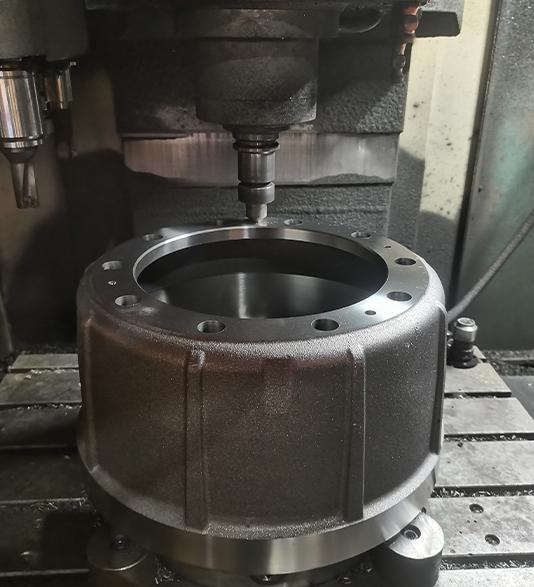Nov . 24, 2024 15:08 Back to list
Understanding Brake Drum Functionality in Trucks for Enhanced Safety and Performance
Understanding the Importance of Brake Drums in Trucks
Brake systems are one of the most critical components of a vehicle, especially for trucks, which are often tasked with carrying heavy loads. Among the various parts of a braking system, the brake drum plays an essential role in ensuring the smooth and safe operation of the vehicle. In this article, we'll explore what brake drums are, how they work, their significance for trucks, and maintenance tips to ensure they remain functional.
What is a Brake Drum?
A brake drum is a cylindrical component that is part of a drum brake system. When the brake pedal is pressed, brake shoes inside the drum expand against the sides of the drum, creating friction that slows down or stops the wheel's rotation. This technology, while sometimes overshadowed by disc brakes in passenger vehicles, remains a popular choice for many trucks due to its effectiveness in controlling larger vehicles.
How Do Brake Drums Work?
When the driver presses the brake pedal, hydraulic fluid flows from the master cylinder to the brake wheel cylinders. The force from the fluid causes the brake shoes to move outward, pressing against the inner surface of the brake drum. This contact generates friction, which converts the kinetic energy of the spinning wheels into thermal energy, slowing the wheels down.
One reason drum brakes are still used in trucks is their inherent ability to generate substantial stopping power. The design allows for multiple shoes to engage the drum simultaneously, offering a larger surface area for friction than many disc brake systems.
Importance of Brake Drums in Trucks
1. Enhanced Stopping Power Trucks frequently carry heavier loads and operate in varied conditions. Brake drums provide the necessary friction and thermal capacity to handle these challenges, ensuring vehicles can stop safely regardless of the cargo.
2. Durability and Longevity Brake drums are made from cast iron or aluminum alloys, which gives them excellent durability. They can withstand the wear and tear associated with stopping heavy vehicles and are less likely to warp under intense heat compared to other braking components.
3. Cost-Effectiveness Repairing or replacing brake drums is generally less costly than other braking components. For fleet operators and truck owners, this can lead to significant savings in maintenance costs over time.
brake drum truck

4. Resistance to Contamination Drum brakes have fewer exposed components than disc brakes, making them less susceptible to issues caused by dirt, mud, or water. This is particularly beneficial for trucks that often operate on unpaved roads or in adverse weather conditions.
Maintenance Tips
To ensure the longevity and effectiveness of brake drums, regular maintenance is crucial. Here are some tips truck owners can follow
1. Routine Inspections Check brake drums and shoes for wear at regular intervals. Look for signs of scoring or warping, which can affect braking performance.
2. Monitor Brake Fluid Levels Ensure that the brake fluid is at an appropriate level. Low fluid can result in inadequate hydraulic pressure and suboptimal brake performance.
3. Adjust Brake Shoes Over time, brake shoes can wear down, leading to misalignment. Regularly adjusting the shoes ensures they engage properly with the drum.
4. Clean the Drums Accumulated dust and debris can create performance issues. Gently cleaning the drums can help maintain their efficiency.
5. Seek Professional Help If unusual sounds or vibrations arise when braking, have the system checked by a professional mechanic. Addressing small issues early can prevent larger, more costly repairs later.
Conclusion
In conclusion, brake drums are a vital component of a truck's braking system, providing the necessary stopping power and durability required for heavy vehicles. Understanding how brake drums work and their significance can help truck owners appreciate their value and ensure better maintenance practices. Regular inspections and care can extend the life of brake drums, ultimately contributing to the safety and efficiency of trucks on the road. In an industry where reliability is paramount, effective braking systems pave the way for safer transportation.
-
HINO Industrial Solutions - ¡Ң���ຽ��е��������˾ | Advanced Efficiency&Customization
NewsJul.13,2025
-
HINO Industrial Efficiency Solutions - ¡Ң���ຽ��е��������˾
NewsJul.13,2025
-
HINO Industrial Solutions - ¡Ң���ຽ��е��������˾ | Advanced Technology&Reliability
NewsJul.13,2025
-
HINO Industrial Efficiency-Jiangsu Hino Industrial|Productivity Optimization&Cost Reduction
NewsJul.12,2025
-
HINO-¡Ң���ຽ��е��������˾|Advanced Industrial Solutions&Energy Efficiency
NewsJul.12,2025
-
Premium Brake Drum Iveco – Durable Drum Brake Drum & Brake Shoe Solutions
NewsJul.08,2025
